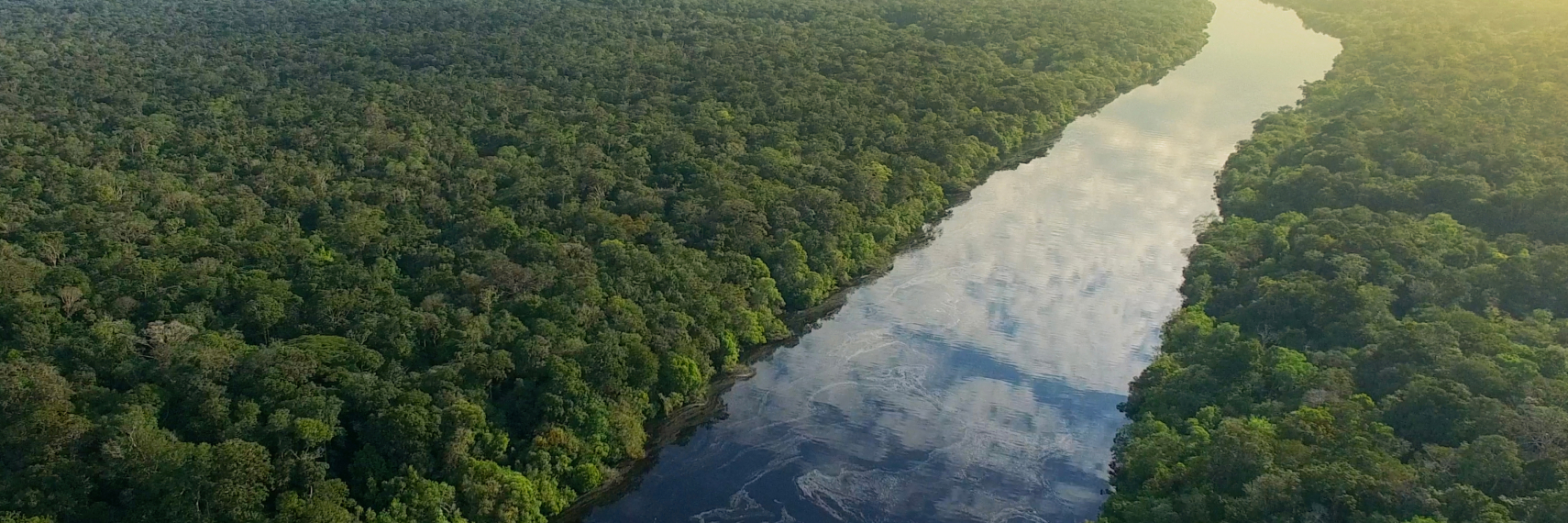ENVIRONMENTAL MANAGEMENT
Minor International is committed to responsible environmental stewardship across our global operations. Our environmental management program is built on a foundation of data-driven decision-making and rigorous monitoring. We have established key performance indicators (KPIs) for energy consumption, greenhouse gas emissions, water usage, and waste reduction for Minor Hotels. To ensure we remain on track to meet these ambitious targets, we conduct quarterly progress reviews, allowing us to identify areas for improvement and implement necessary adjustments.
We also encourage our business units and properties to find innovative solutions to improve their environmental performance. Our latest notable projects can be found under Notable Sustainability Initiatives under Our Reporting.
Our Plan for Net Zero
Scope 1 and 2 emissions
Our strategies and initiatives to reducing our Scope 1 and Scope 2 emission include:
1. Energy efficiency programs
Increase energy efficiency, from installing monitoring and controls systems, upgrading equipments, and improving building envelopes to incentivizing and training our teams to save energy through behavior changes and adjustments to operations.
2. Electrification
We look for opportunities increase building electrification; for example, replacing natural gas heating system with heat pumps and converting corporate fleets to EV.
3. On-site energy generation
Enhance renewable energy usage, with a particular focus on expanding onsite solar PV installations and consider biogas digesters as a way to manage organic waste and generate bioenergy.
4. Renewable energy procurement
Seek to procure carbon-free electricity wherever it is accessible.
5. Renewable Energy Certificates (RECs)
Consider purchasing RECs in markets where direct procurement of green electricity is not accessible.
In addition, we encourage our properties to conduct energy audits to identify opportunities for further improvement and to include energy audit prior to conducting major renovations.
Minor Hotels under operational control of Anantara, AVANI, Oaks, Tivoli, the assigned individual hotel management team has conducted the annual verification in alignment with engineering audit format issued by Corporate Engineering Department to ensure proper operations of all equipment/ systems in support of Minor Hotels' environmental goals. Minor Food Project and Facility department has overseen environmental management of all Thailand equity restaurants.

Scope 3 emissions
As a global hospitality and food service provider, our supply chain is the largest source of greenhouse gas emissions, predominantly due to the procurement of proteins like poultry, pork, beef, and dairy products. These items significantly contribute to our Scope 3 emissions. Packaging, particularly single-use plastics, is another key area for emission. The range of areas where Minor can control Scope 3 emissions is limited. In 2024, we aim to conduct a detailed analysis of our Scope 3 emissions to pinpoint improvement opportunities and expand supplier engagement to address these indirect emissions. We are also working with both our suppliers and our brand partners to improve greenhouse gas data reporting to improve transparency across our value chain.
Supplier Engagement
To spur supply chain decarbonization, Minor is setting supplier emissions reduction expectations, evaluating climate competency, providing capacity building. In 2023, we initiated dialogue with key protein suppliers in Thailand to share Minor's net zero commitment, setting up a communication channel and process for acquiring product greenhouse gas emissions data and to comprehend their emission reduction strategies. Additionally, we contacted primary suppliers of Minor Food's international hubs and our brand principles for Minor Lifestyles for similar data. Moving forward into 2024, we plan to extend this engagement to additional protein suppliers and our packaging suppliers.
Franchises
Our franchisees are crucial business partners for pursuing sustainability. In 2024, we plan to engage our Minor Food franchisees in Thailand, where we have the largest footprint, to share Minor's Net Zero plan and jointly identify opportunities for energy efficiency.
Additionally, Minor is building partnerships across the hospitality value chain to accelerate climate efforts through data sharing, energy efficiency programs, and waste management. For example, we are collaborating with some of our landlords on sharing emissions data, energy efficiency, and waste reduction opportunities.
Carbon offset and removals
We consider the use of high-quality carbon offsets to mitigate our emissions within and beyond our value chain.

Water Management
Minor is committed to water stewardship through water conservation as well as ensuring that our wastewater from our operations meet or exceed quality standards of local regulations.
- Our water conservation practices include:
- Installation of water efficient fixtures and equipment in our hotels and restaurants.
- Grey water recycling system – where possible we divert our grey water to use in our gardens and landscaping.
- Operational water efficiency practices through staff awareness and training such as ensuring optimal laundry loads to reduce water intensity per kilogram of laundry.
- Leak detections and preventive maintenance program.
Water Risks Management
In addition, we assess potential water risks that may impact our operations and in communities we serve. We map our hotel properties and manufacturing facilities against World Resources Institute’s Aqueduct Water Risk Atlas and use the results to analyze water risks across our asset locations. Where water-related risks are determined to be material, plans are put in place to mitigate potential impacts.
Waste Management
Minor is committed to reducing waste along our value chain by implementing measures and programs to reduce the use of packaging, eliminate single-use plastic, increase recycling, reduce food loss and waste, and utilize food loss & waste for alternative use.
Tackling food waste is a complex challenge, but Minor remains committed to finding realistic solutions. Through partnerships, technology, and a conservation culture.
Reducing food loss and waste in our supply chain
We have set targets and KPIs to reduce food loss and waste, applied both for Minor Hotels and Minor food, as part of our supply chain management programs.
- Supply Planning: Implement programs in order to improve accuracy of forecasting and purchase order.
- Warehouse Management: Standard Operating Procedure on end-to-end product handling to ensure minimal food loss and food waste.
- Transportation: Standard Operating Procedure on end-to-end product handling and trainings for drivers to ensure minimal food loss and food waste.
- Operations: Food waste and its costs in relation to sales are monitored on a daily or weekly basis against operational threshold to ensure that any increases are swiftly addressed.
- Disposal Management: Leverage relationship with pet food producer to purchase ingredients, instead of disposal, to be used as raw material for pet food production, including animal feed.

Used cooking for oil biodiesel
Aligning with our environmental commitment, all used cooking oil generated from Minor Food outlets in Thailand is managed through an authorized partner where it is used as raw material for biodiesel.
Environment Certifications
As part of our commitment to making sustainability a core element of our operations, Minor aims to build sustainability into our overall performance standards and operational procedures in line with internationally accepted standards and certifications. Minor’s hotels were certified under ISO 14001: Environmental management system, ISO 50001: Energy management, BREEAM, LEED, Green Key – Eco Label, Hoteles más Verdes. Complete list of our certifications is presented in “Membership and Certifications” section of Sustainability Performance Data.

BIODIVERSITY CONSERVATION
Biodiversity is crucial for the sustainability of Minor's businesses and the well-being of stakeholders. As a company reliant on natural resources for our hotels and supply chain, we recognize the need to safeguard ecosystems. We prioritize conservation efforts alongside reducing carbon emissions to address the interconnected challenges of biodiversity loss and climate change.
To effectively protect biodiversity, we assess risks and impacts using the Taskforce on Nature-related Financial Disclosures (TNFD) framework. Our focus is on locations like nature-based hotels, which have significant potential to influence biodiversity positively or negatively. We aim to minimize ecological harm and actively contribute to biodiversity conservation by implementing the Biodiversity Risk Assessment Framework, guided by TNFD's LEAP approach which guide our hotels in:
- identifying the type of ecosystem in the area where they are located,
- evaluating their impacts and dependencies on biodiversity,
- assessing risks and opportunities of their operations on biodiversity, and
- developing initiatives and implementation plans in respond to their findings.
Through conservation initiatives, we endeavor at protecting local biodiversity, sustaining ecosystem services, and fostering positive impacts within surrounding communities. Highlights of our conservation efforts can be found on “Biodiversity Conservation” section in our Sustainability Report Details of our initiatives are presented in “Biodiversity” section of Sustainability Performance Data.